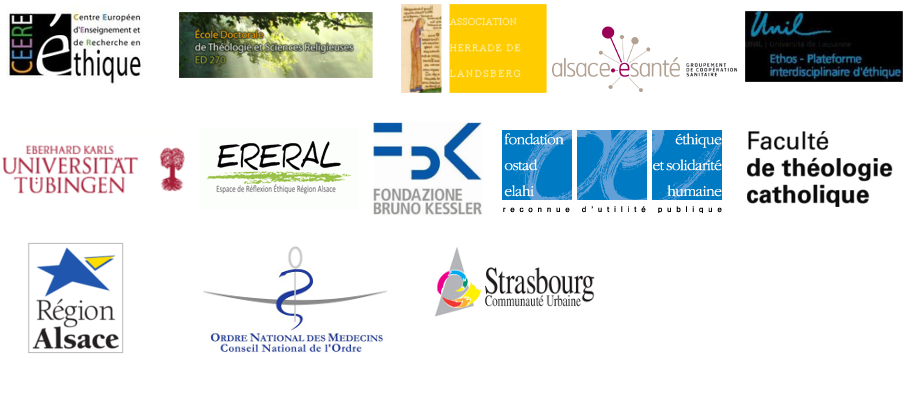MIET Philippe
MIET Philippe

Nom, prénom : MIET Phillipe
Fonction :
• Conseiller national politiques européennes et internationales APF
• Délégué permanent du Conseil français des personnes handicapées pour les questions européennes-CFHE
Title:
• National consultant for European and International policy at the APF (Association Paralysés de France)
• Permanent representative on the CFHA (French Council for Disabled People) for European issu
Institution :
Association des Paralysés de France (APF) - Paris
Adresse :
APF - 17,bd Auguste Blanqui - 75013 - PARIS - Courriel : philippe.miet@apf.asso.fr
Titre de la conférence
Réflexions sur le processus de désinstitutionalisation et les politiques d’inclusion dans le champ du handicap à partir d’exemples européens?
Reflections on the process of community care and inclusion policies in the field of disability, based on European examples.
Prozess der Desinstitutionalisierung und Eingliederungshilfe in Europa
Summary of communication
Over the last twenty years, the care in the community movement has developed in very varied ways across Europe. If the process of moving care into the community needs definition, the same is true of the motivations that led to it in the first place.
A number of organisations for disabled people were involved in initiating the movement, driven by considerations of equal access to fundamental rights. Other socio-political (Italy in the seventies) or socio-economic factors encouraged the development of neighbourhood policies. Today, the European Union has included the ‘transition of healthcare from institutions towards neighbourhood care’ in its strategy for disability policies in 2010-2020.
What has to be guaranteed from an ethical point of view to ensure that principles of dignity, self-determination and autonomy are respected for people dealing with disability who are undergoing such a process?
Zusammenfassung des Vortrags
Seit 20 Jahren hat sich die Bewegung der Desinstitutionalisierung unterschiedlich in Europa entwickelt. Wenn es notwendig ist, den Mechanismus dieser Desinstitutionalisierung zu klären, gilt es ebenso die dahinterstehenden Gründe zu untersuchen.
Aus Gründen gleichberechtigter Teilhabe an Grundrechten, hat eine Reihe von Behindertenverbänden diese Bewegung eingeleitet. Andere soziopolitische (Desinstitutionalisierung in Italien in den 70er Jahren) oder sozioökonomische Zusammenhänge haben diesen Willen, die Nachbarschaft Politik zu entwickeln, fortgesetzt. Heutzutage schreibt die Europäische Union diesen Übergang der Gesundheitsversorgung in Institutionen zur Nachbarschaftsversorgung in ihre Strategie 2010-2020 der Behindertenpolitik.
Was soll man von einem ethischen Blickpunkt aus garantieren, damit die Prinzipien von Menschenwürde, Selbstbestimmung und Autonomie der Menschen mit Behinderung in einem solchen Prozess geachtet werden können.
Réflexions sur le processus de désinstitutionalisation et les politiques d’inclusion dans le champ du handicap à partir d’exemples européens?
Reflections on the process of community care and inclusion policies in the field of disability, based on European examples.
Prozess der Desinstitutionalisierung und Eingliederungshilfe in Europa
Résumé :
Depuis une vingtaine d’années, le mouvement de désinstitutionalisation s’est développé de façon très diversifié en Europe. Si ce mécanisme de désinstitutionalisation nécessite d’être précisé, il en va de même pour les raisons qui en sont à l’origine.
Pour des raisons d’égalité d’accès aux droits fondamentaux, un certain nombre d’organisations de personnes handicapées ont été à l’origine de ce mouvement. D’autres contextes sociopolitiques (désinstitutionalisation en Italie dans les années 70) ou socioéconomiques ont poursuivi cette volonté de développer des politiques de proximité.
Aujourd’hui, l’Union européenne inscrit cette « transition des soins de santé en institutions vers des soins de proximité » dans sa stratégie de politique du handicap 2010-2020.
Que doit on garantir d’un point de vue éthique pour que les principes de dignité, d’autodétermination et d’autonomie des personnes qui vivent des situations de handicap puissent être respectés dans un tel processus ?

